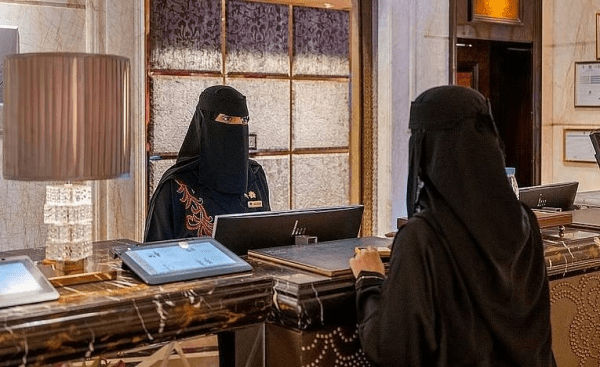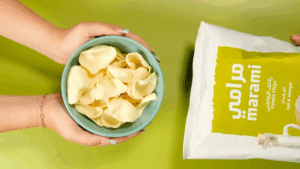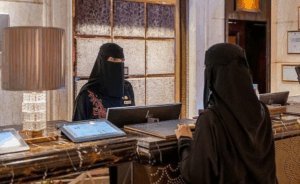The face of Saudi hospitality is changing, and it’s being shaped by women. Walk into a busy restaurant in Riyadh, a quiet café in Al Khobar, or a boutique guesthouse tucked into the hills of Abha, and there’s a growing chance a woman is behind it. As reported by Monsha’at, in 2024, women owned nearly half of all hospitality businesses in the Kingdom, with 59,800 establishments. That’s a dramatic shift from just a few years ago, when the number hovered around 3%. These numbers reflect stories of persistence, new possibilities, and the quiet power of reform. Saudi women are opening restaurants, designing guest experiences, and building spaces that reflect their voice and the country’s evolving spirit.
How the Landscape Has Changed
Until recently, women had limited access to business ownership. But now, Saudi Arabia is seeing the impact of new policies, support programs, and changing attitudes. Women-owned businesses across all sectors have grown from 21% in 2016 to 42% in 2024. In hospitality alone, women now run nearly half the sector. Food and beverage has seen the most progress, with 51.5% of these businesses owned by women, while accommodations still lag behind at 22.8%.
This momentum is not only about ownership. It’s also about jobs. Women now make up 45% of the hospitality workforce. Among Saudi nationals working in the sector, women slightly outnumber men. Hospitality has become a place where women can grow careers, build networks, and explore new opportunities.
Vision 2030 and Its Impact on Women
Vision 2030 played a big role in this shift. One of its early goals was to increase women’s workforce participation to 30% by 2030. That target was surpassed ahead of schedule. Women made up 35.4% of the workforce in 2024. With new goals set at 40%, the Kingdom is doubling down on gender inclusion.
For hospitality, this has meant new opportunities. Women are taking leadership roles in hotel management, culinary innovation, and tourism planning. Red Sea Global and Taiba Investments have both reported high percentages of female representation in key teams. And across the board, there’s a growing sense that women are helping define the future of the sector.
Monsha’at and the Power of Programs
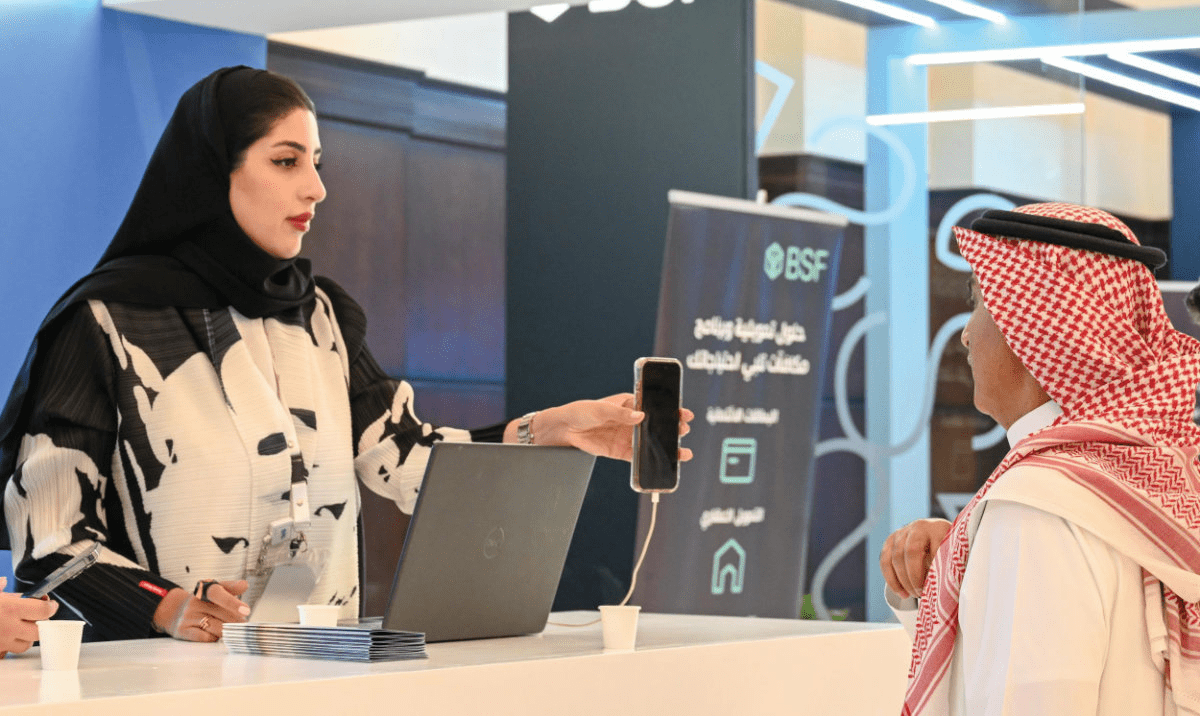
Monsha’at, the authority for small and medium enterprises, has been a key driver behind this growth. Through initiatives like the Empowering Female Entrepreneurs Program, it offers training, mentorship, regulatory guidance, and market entry support. Women get help starting their ventures, finding investors, and building strong business foundations.
Specialized academies under Monsha’at also offer courses just for women. Programs like Tomoh connect female entrepreneurs to opportunities in emerging sectors. Together, these initiatives are helping women move from ideas to execution.
Legal and Social Shifts Behind the Numbers
Policy changes have cleared many of the roadblocks women used to face. Today, women can register a business without male approval. Gender segregation rules in restaurants were lifted in 2019, changing how many food ventures operate. Anti-discrimination laws are now in place to protect women in the workplace, and reforms in finance have improved access to credit.
These legal updates are mirrored by changing public perceptions. More families support women running businesses. There’s growing respect for women in leadership, especially as more female-owned ventures succeed. Each breakthrough helps normalize the next.
The Economic Contribution of Women-Owned Businesses
Women-led ventures are adding real value to the economy. While exact GDP data for female-owned hospitality businesses isn’t isolated, we know that SMEs are set to contribute 35% of Saudi Arabia’s GDP by 2030. With women owning nearly half of those businesses, their impact is clear.
Women are also creating jobs. Nearly half of the hospitality workforce is employed in female-owned businesses. In tourism alone, over 111,000 Saudi women are working today. And as more women launch and grow their ventures, these numbers will likely continue to rise.
Innovation in Women-Led Hospitality
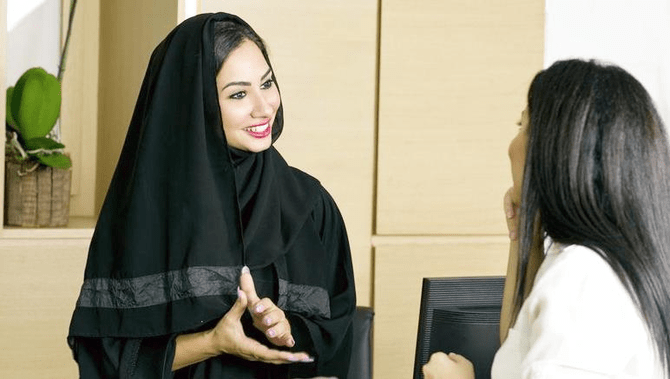
Saudi women are creating new concepts. Some, like Nouf Alsaleem’s Mathaqi, use technology to connect home chefs with customers. Others are opening spaces that blend culture, art, and hospitality into one experience. These ideas reflect how women are responding to local needs while also shaping what modern Saudi hospitality can look like.
Luxury, too, is being redefined. Women like Princess Reema bint Bandar are building hospitality brands that merge Saudi heritage with global appeal. Across every level of the market, women are driving innovation and setting new standards.
The Challenges That Remain
While the numbers show progress, challenges still exist. Leadership roles in large hotel chains remain limited for women. Accommodation ownership is lower compared to food businesses. And balancing business and family is still a major concern, especially in a sector known for long hours.
Social expectations continue to influence decisions. Some customers, suppliers, or investors still hold outdated views on women in leadership. In many cases, women have to work harder to prove themselves or earn trust.
Building for the Future
With the right support, the next generation of Saudi women in hospitality will go even further. They’ll lead hotels, shape tourism strategies, and redefine what hospitality means in the Kingdom.
The story of women in Saudi hospitality is about more than numbers. It’s about resilience, opportunity, and change. In every restaurant, boutique hotel, or tourism project led by a woman, you’ll find a reflection of where Saudi Arabia is headed. And if the past few years are any indication, the road ahead looks full of potential.
FAQs
How many women-owned hospitality businesses are there in Saudi Arabia?
By 2024, women owned around 59,800 hospitality businesses in Saudi Arabia. That’s nearly half of all establishments, with strong numbers in food and beverage.
What role does Vision 2030 play in women’s participation in hospitality?
Vision 2030 helped open doors for women in business. It boosted workforce participation, supported tourism growth, and encouraged more women to launch hospitality ventures.
How does Monsha’at support female entrepreneurs in Saudi Arabia?
Monsha’at offers training, mentorship, and business services. Programs like the Empowering Female Entrepreneurs initiative focus on giving women the tools and support they need to grow.
What challenges do women still face in Saudi Arabia’s hospitality sector?
Some women still struggle with limited leadership roles, work-life balance, and access to funding. Cultural expectations can also shape how freely they grow their businesses.
What kinds of hospitality businesses are led by Saudi women?
Saudi women run cafés, restaurants, boutique hotels, event spaces, and home-based food platforms. Many blend local tradition with fresh, modern ideas.

